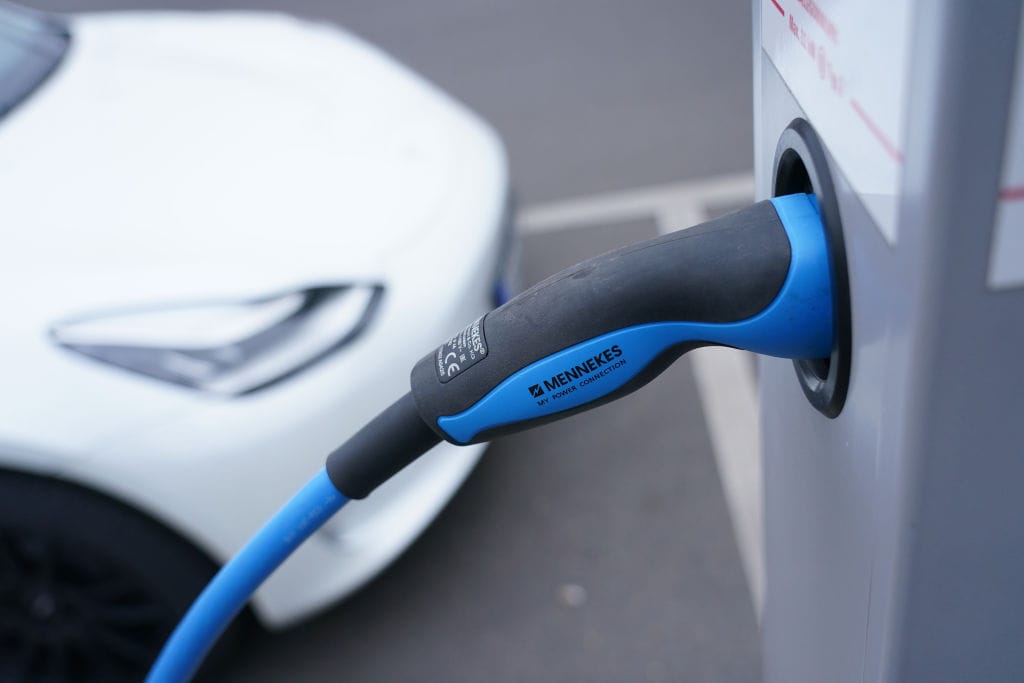Minnesota is the Midwest leader on electric vehicles, report says

By Christopher Ingraham, Minnesota Reformer
Minnesota is the Midwestern leader on policies encouraging the widespread use of electric vehicles, according to a new scorecard from the American Council for an Energy-Efficient Economy, an advocacy group.
But the state still has considerable work to do to catch up to national leaders like California, New York and Colorado, according to the report, which grades states on their EV incentives, charging infrastructure, grid optimization and other categories.
“Minnesota is the leading state in the Midwest,” explained Peter Huether, a senior research associate at ACEEE. “Minnesota has a significant amount of utility EV infrastructure investment in the pipeline, more than $325 million, making it the state with the third-largest proposed utility investment per customer in the country.”
The state also scored points for prioritizing EV deployment in environmental justice areas, where people of color have experienced disproportionate harm from the effects of environmental degradation.
But Minnesota hasn’t kept pace with rulemaking in some other states, most notably California, which will require all new passenger vehicles sold in the state to have zero emissions by 2035.
This past legislative session saw several major advances on the decarbonization front, including a bill to move the state to 100% carbon-free electricity by 2040. Lawmakers also passed $2,500 rebates for electric vehicles, tens of millions in funding for solar power in schools, and incentives for school districts to buy electric buses. Even electric bikes buyers can get a tax credit.
Huether noted that those changes to the law passed after ACEEE’s data deadline for the report passed. Had they been included, Minnesota would have scored better.
Overall Minnesota ranked 17th out of 32 states plus D.C. included in the report. An additional 18 states — primarily run by the GOP — weren’t included at all due to their overall lack of planning for an EV transition. Of the states bordering Minnesota, only Iowa was included in the report, coming in at 33rd place.
One potential roadblock to the adoption of electric vehicles in Minnesota is the state’s reliance on state and federal incentives for biofuels like corn ethanol. Those incentives are popular with politicians in both parties as a way to win over powerful agricultural interests. They’re also supported by petroleum companies who see them as a way to prop up traditional internal combustion engines, ensuring a market for liquid fuels.
The latest federal data show that one out of every 20 acres in Minnesota is devoted to corn ethanol production, a barometer of the importance of biofuel subsidies to farmers and politicians here.
Biofuels still produce tailpipe emissions, and research shows that once you account for things like the conversion of forests to cropland, they may not offer much emission advantage over traditional fossil fuels. Electric vehicles, by contrast, have no tailpipe and produce zero emissions in the course of operation, leading many experts to argue that major national climate goals won’t be met without widespread EV adoption.
As of January 2023, there were roughly 34,000 electric vehicles registered in the state, an increase of about 10,000 from two years ago.
“Auto manufacturers are expanding their EV options and consumers are increasingly choosing them,” Huether said. “But supportive state policies are needed to ensure that the electric grid is ready and that all households and businesses, including those in underserved communities, can use EVs and have adequate access to charging.”
Minnesota Reformer is part of States Newsroom, a network of news bureaus supported by grants and a coalition of donors as a 501c(3) public charity. Minnesota Reformer maintains editorial independence. Contact Editor Patrick Coolican for questions: info@minnesotareformer.com. Follow Minnesota Reformer on Facebook and Twitter.